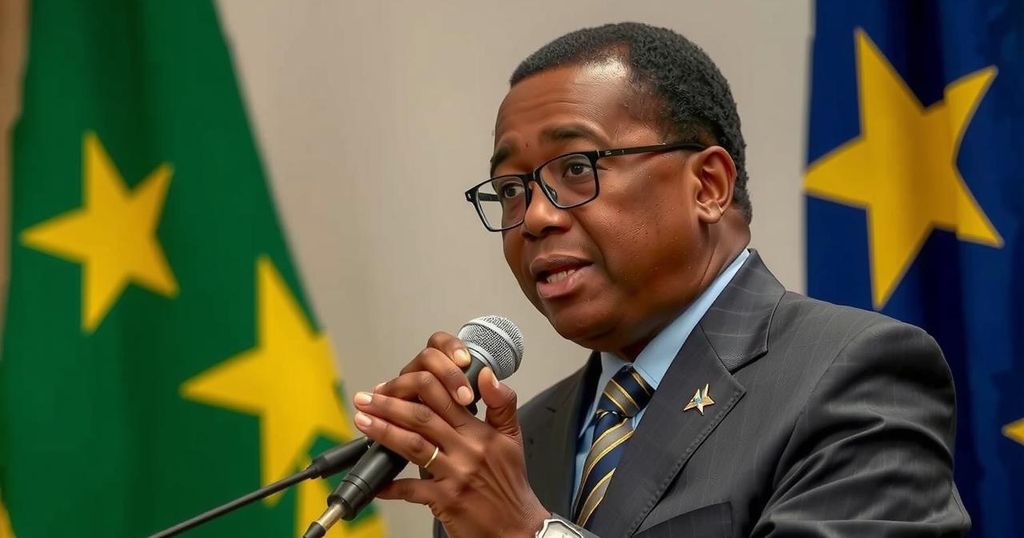Thailand’s Prime Minister Paetongtarn Shinawatra apologized for the Tak Bai massacre that occurred 20 years ago, resulting in the deaths of 85 Muslim protesters. The massacre has seen no accountability despite efforts to prosecute involved security personnel. UN rights experts expressed concern over the impending statute of limitations that threatens justice, calling on the Thai government to uphold human rights obligations and investigate the case further.
On Thursday, Thailand’s Prime Minister Paetongtarn Shinawatra formally apologized for the tragic massacre of 85 Muslim protesters that occurred two decades ago, an event for which no individual has ever been held accountable. During a statement addressing the nation, she expressed deep sorrow for the incident, which happened under the administration of her father, former Prime Minister Thaksin Shinawatra, who is a significant figure within the ruling Pheu Thai Party. The Tak Bai massacre, occurring in the southern region of Thailand on October 25, 2004, marked a pivotal point in a years-long separatist insurgency that has continued to claim lives—over 7,600 to date. The incident began violently when security forces opened fire on demonstrators protesting outside a police station in Narathiwat, one of the predominantly Muslim provinces of the country. The shooting resulted in the immediate deaths of seven individuals, followed by the suffocation of 78 others who were apprehended, stacked on top of one another in military vehicles, unable to breathe as they were forcibly restrained. Despite ongoing efforts to pursue justice, attempts to prosecute key security personnel have consistently failed—most recently highlighted by their absence at court hearings regarding charges filed against them. As the statute of limitations approaches expiration, there exists a grave concern that these cases will soon be dismissed without any resolution, perpetuating a legacy of impunity in a conflict that continues to inflict suffering on the affected communities. UN rights experts have publicly expressed their alarm over the lack of accountability for the massacre, stating that failure to investigate and prosecute those responsible constitutes a violation of Thailand’s obligations under international human rights law. They urged the Thai government to act urgently to uphold the families’ rights to truth, justice, and reparations, while also expressing concern for the fate of the seven individuals who disappeared during the massacre. The families of the victims emphasize that the memory of their loved ones and the desire for justice will endure, regardless of the legal limitations posed by the current judicial framework. In summary, while the government of Thailand has acknowledged its tragic past, the ongoing lack of accountability raises significant questions regarding its commitment to justice and human rights, particularly in relation to the protracted struggles faced by the Malay Muslim population in the southern provinces.
The Tak Bai massacre represents a significant moment in Thailand’s tumultuous history with its southern Malay Muslim population, which has experienced decades of unrest and violence fueled by complex historical grievances. The insurgency, which resumed in 2004, has led to thousands of deaths and a persistent cycle of retaliation and crackdowns by security forces. Investigations into this specific incident have been met with minimal governmental action, revealing a broader context of systematic impunity regarding human rights violations in the region.
The acknowledgment of the Tak Bai massacre by Thai authorities is a crucial step, yet it starkly contrasts with the absence of accountability for the perpetrators. The calls from UN experts underline the urgent need for the Thai government to fulfill its human rights obligations and ensure justice for the victims’ families. The potential expiration of the statute of limitations poses a grave threat to accountability, reinforcing the crucial importance of addressing historical injustices to foster reconciliation and healing within affected communities.
Original Source: www.arabnews.com






